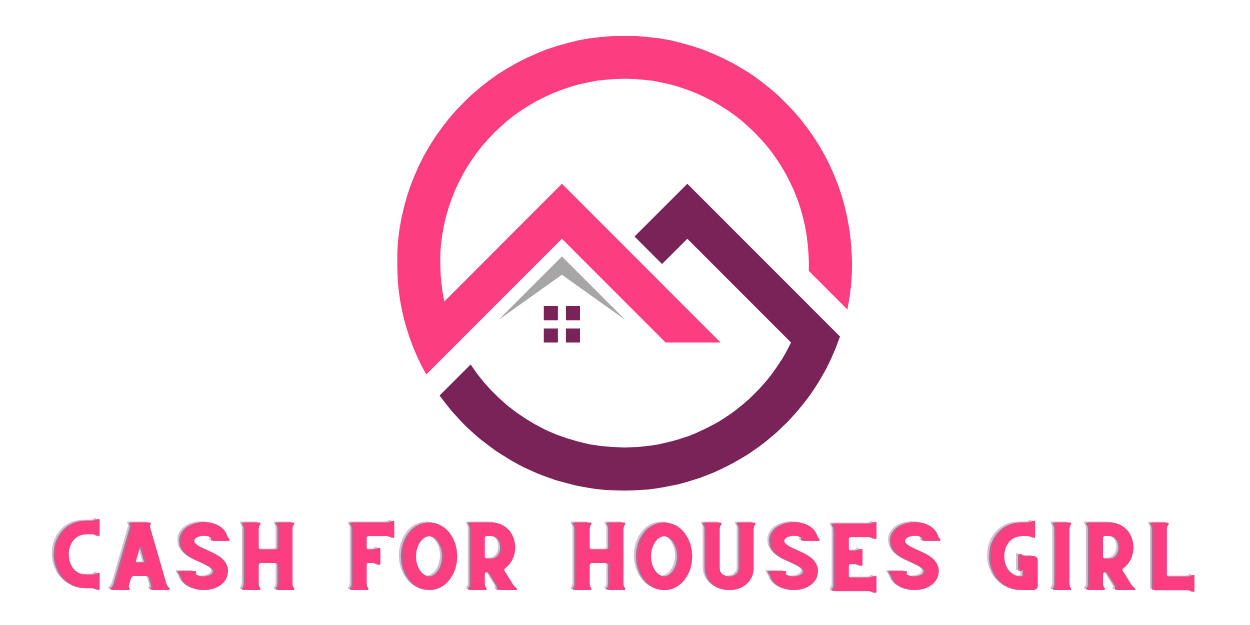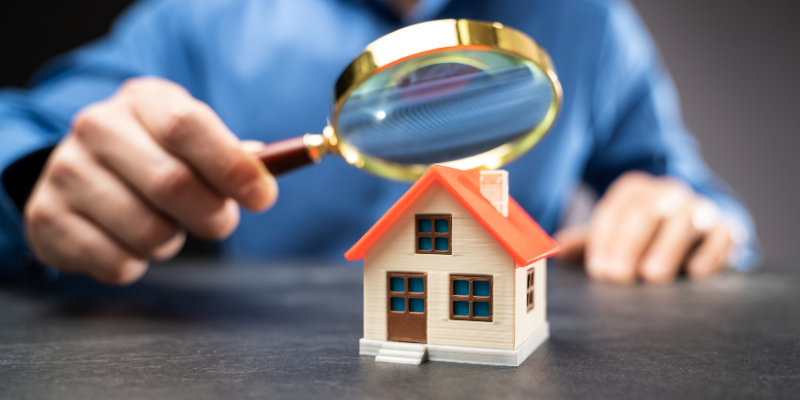
Navigating Real Estate Transactions: Importance of Accurate Valuations
In Virginia real estate transactions, buyers and sellers must understand the financial responsibilities of home assessments and inspections. Accurate appraisals are critical for guaranteeing fair market values, which can influence mortgage approvals and negotiations.
Typically, the buyer bears the expense of the home appraisal since lenders demand precise property evaluations to determine loan amounts. Buyers usually pay for home inspections as part of their due diligence to identify potential faults affecting property value or prompt renegotiation.
These evaluations provide crucial insights into a property’s condition and market value, allowing all parties to make informed decisions. Knowing who pays for these services in Virginia simplifies the real estate process, preventing unexpected costs and promoting speedier transactions.
Differences Between Appraisals and Inspections: What You Should Know
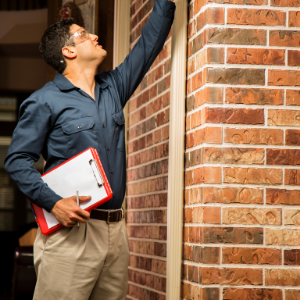
Understanding the distinction between appraisals and inspections in the Virginia real estate market is critical for buyers and sellers. An appraisal is a formal assessment undertaken by a professional appraiser to determine a property’s fair market value, which mortgage lenders require when determining loan amounts.
The appraisal process entails reviewing comparable home sales, evaluating the property’s attributes, and determining its overall condition. On the other hand, a home inspection is performed by a licensed inspector who assesses a property’s physical structure and systems, looking for potential problems such as plumbing leaks, electrical faults, or structural damage.
While an appraisal focuses solely on a home’s financial value, an inspection seeks to identify any underlying flaws that may influence the buyer’s decision or future repair expenses. In Virginia real estate deals, purchasers often pay for a home appraisal and inspection as part of their due diligence process before purchasing.
For homeowners who want to sell their house fast in Virginia without waiting for lengthy appraisals and inspection negotiations,Cash For Houses Girl simplifies the process. We buy houses for cash as-is — so you don’t have to worry about repairs, buyer contingencies, or failed inspections.
Understanding Home Appraisals: Key Factors That Impact Value
Understanding the primary elements influencing home appraisals in Virginia’s real estate market is critical for buyers and sellers. The appraisal process assesses various factors to determine a property’s fair market value, directly impacting mortgage approvals and negotiation strength.
Location is an important issue, with accessibility to amenities, schools, and transportation hubs influencing value. The property’s size, including square footage and lot size, is also essential.
The home’s condition is also essential; well-maintained residences with updated systems and modern amenities typically obtain higher ratings. Comparable sales, or “comps,” are another critical component, as appraisers use previous sales of similar houses in the region to determine a baseline value.
Economic factors and local market trends further impact evaluations, altering demand and supply dynamics. Understanding these characteristics enables stakeholders to make informed judgments about real estate transactions in Virginia.
Key Steps in the Property Appraisal Process
Buyers and sellers in Virginia real estate must comprehend the main steps in the property evaluation process. The first step is to hire a professional appraiser, which is often organized by the lender when a buyer applies for financing.
This appraiser thoroughly evaluates the property’s value based on location, size, condition, and regional comparable sales. During this process, the buyer usually pays the appraisal fee as part of the closing fees.
The appraiser will undertake a complete evaluation of the property, inspecting both the interior and exterior and noting any changes or necessary repairs. Accurate documentation and images will be gathered to support their assessment.
Following the on-site inspection, the appraiser creates a detailed report summarizing their findings and providing an estimated market value for the property. This appraisal report substantially impacts whether the lender will accept a mortgage loan amount consistent with the property’s assessed value.
Understanding these processes ensures all parties understand who is financially responsible during this key stage of Virginia real estate deals.
The Effect of Market Trends on Property Appraisals
In Virginia’s real estate market, buyers and sellers must understand the impact of market trends on property valuations. Market trends can considerably impact assessment values, since they represent the current demand and supply dynamics in various places.
For example, assessments may be higher in a seller’s market where demand exceeds supply due to intense bidding, pushing home prices. In contrast, in a buyer’s market with more available inventory than interested buyers, appraisals may be lower, indicating lower property values.
Seasonal swings also play a role; spring and summer are often busier and may result in higher ratings than the calmer winter months. Economic variables such as interest rates and employment numbers further impact market conditions and, thus, appraisal results.
Understanding these criteria is critical for negotiating Virginia real estate deals, as appraisal values substantially impact mortgage approvals and negotiation strategy.
How Location Impacts Property Value Assessments

In Virginia real estate, a property’s location is critical in determining its worth during appraisals and inspections. Proximity to urban centers, strong school districts, and local amenities such as retail malls, parks, and public transportation can considerably influence property values.
Properties in high-demand communities typically have higher appraised values due to their appeal and potential for appreciation. Homes in rural or underdeveloped areas may have lower value assessments due to limited access to services and infrastructure.
Additionally, the economic conditions of the surrounding area, such as employment rates and crime levels, influence how homes are evaluated. When evaluating, appraisers consider these location-based criteria to give accurate market value assessments that reflect current Virginia real estate trends.
Understanding these variables is critical for buyers and sellers as they navigate the difficulties of home appraisals and inspections in this diversified state market.
Improving Your Home’s Value Before Appraisal
Improving your home’s value before an assessment in Virginia real estate entails planned upgrades that can significantly impact the final valuation. Begin by focusing on curb appeal, as first impressions count; a well-kept lawn, fresh paint, and tidy landscaping can boost perceived value.
Focus on necessary repairs and updates inside the house, such as mending leaks, upgrading obsolete fixtures, and adding a fresh layer of neutral paint. Consider remodeling kitchens and bathrooms, which often provide excellent returns on investment.
Decluttering and deep cleaning each room can give the home a sense of space and order, making it more appealing to appraisers. Energy-efficient modifications, such as installing new windows or adding insulation, boost house value and appeal to environmentally aware buyers.
Ensure that all home systems, such as HVAC and plumbing, are in perfect operating order to avoid deductions during the appraisal process. Virginia homeowners can significantly improve their property’s marketability and overall estimated worth by correcting these critical areas.
If you’d rather sell your Virginia house as-is, we’ll make you a fair cash offer without requiring any repairs, upgrades, or staging. It’s the fastest way to sell your house in Richmond, Chesapeake, or nearby cities.
Choosing the Right Appraiser or Inspector: Credentials and Qualifications
Hiring a knowledgeable appraiser or inspector is critical to assuring accurate property evaluations and inspections when navigating the Virginia real estate market. Prospective homebuyers and sellers must emphasize credentials and qualifications to provide dependable service.
Appraisers in Virginia should be licensed by the Virginia Real Estate Appraiser Board, ensuring they have the appropriate education and expertise to execute reliable appraisals. Similarly, home inspectors should be accredited by reputable organizations, such as the American Society of Home Inspectors (ASHI) or the International Association of Accredited Home Inspectors (InterNACHI).
These certifications demonstrate that the inspector follows industry standards and best practices. Checking references and reviews can also reveal information about an appraiser’s or inspector’s reputation and dependability.
Individuals participating in Virginia real estate transactions may trust that their chosen professionals have the skills to conduct thorough evaluations, allowing them to make more informed decisions about house purchases or sales.
Who Covers the Cost of Home Appraisals in Virginia?
In Virginia real estate transactions, buyers and sellers must understand who pays for home appraisals and how much they cost. Typically, the buyer pays the appraisal fee since lenders must accurately appraise the property’s market value before approving a mortgage. This ensures that they do not lend more than the home is worth, safeguarding both the buyer’s investment and the lender’s interests.
Appraisal prices in Virginia typically run between $300 and $500 for a basic single-family house. However, they can be higher for larger properties, distinctive residences, or those requiring more extensive investigation. Costs vary by location, with appraisal costs greater in urban areas such as Northern Virginia than rural areas.
While it is customary for buyers to pay these costs, sellers may occasionally agree to cover some or all of the costs to make their property more appealing, particularly in competitive markets. Because appraisal fees can influence discussions, it is critical for both parties to clearly define responsibilities in the purchase agreement to avoid misunderstandings at closing.
Understanding the costs and payment responsibilities helps buyers and sellers plan, budget, and bargain more effectively, resulting in smoother Virginia real estate transactions.
Financing Options to Cover Appraisal and Inspection Costs
Understanding financing alternatives for house appraisal and inspection expenses is critical for buyers and sellers navigating the Virginia real estate market. Although these charges are usually the buyer’s responsibility, several efficient cost-management strategies exist.
Buyers frequently utilize personal savings to pay for appraisals and inspections upfront, ensuring they understand a property’s value and condition before purchasing. Some people roll these fees into their mortgage using lender credits, which can reduce immediate out-of-pocket payments but may slightly increase the interest rate over time.
Furthermore, specialized lending programs, such as FHA or VA loans for veterans in Virginia, may provide some flexibility or aid in settling these fees. It is also possible to negotiate with sellers to include appraisal and inspection fees in closing cost concessions, in which the seller agrees to pay some of the buyer’s closing costs as part of the sales contract.
Understanding these possibilities enables buyers to properly arrange their money while conducting due diligence on potential residences.
A Comprehensive Guide to Home Inspections for Buyers and Sellers
In Virginia real estate, buyers and sellers must comprehend the complexities of home inspections. Home inspections are vital to the transaction process since they thoroughly assess a property’s condition.
Typically, the buyer arranges and pays for a home inspection to ensure no hidden faults impair the property’s value or safety. A professional inspector thoroughly assesses structural components, electrical systems, plumbing, and other vital areas.
Sellers can also undergo pre-listing inspections to discover and resolve issues before advertising their property, increasing marketability. This may provide sellers with more negotiation leverage and allow for smoother deals.
In Virginia’s competitive real estate market, understanding who pays for these inspections can influence bargaining techniques and final transaction outcomes. To avoid surprises at closing, both parties must be informed of their rights and duties regarding inspection charges.
How to Prepare Your Home for a Successful Inspection
Ensuring your residence is ready for inspection is a pivotal step in Virginia’s real estate transactions. Begin by remedying overt deficiencies; replacing a cracked window, clearing carbon-blocked air grilles, or tightening a dripping faucet, for example, remain excellent pre-showing actions. Assigning attention to such minor tasks will reduce the inspector’s effort, minimizing the likelihood of unpleasant surprises.
A dust-free and orderly presentation is not merely cosmetic; inspectors prefer unobstructed access to all systems, cabinets, and light fixtures. Interactions are expedited when these areas remain free of boxes, laundry, or loose pets. Increased efficiency typically creates a favorable impression, so thoroughly cleaning is recommended.
Review all major systems, such as plumbing, ductwork, electrical panels, and HVAC, and ensure they are functional. A pre-inspection examination by licensed specialists will permit the discovery and repair of minor irregularities before they mutely degrade into larger deficiencies. Smoke and carbon-monoxide detectors, already understood as safety essentials, deserve the same care; test and replace batteries ahead of the inspector’s first step.
Equally, the inspector will not want to entangle their stride in last autumn’s leaves in the walk space to the rear-entry door. Gradually pruning excursive shrubs will grant instantaneous exposure of the foundation wall and will afford the inspector a clear view of the horizontal seams or, perhaps, the microfish ponds that a perfunctory level of care will resolve.
Timely attention to these non-intrusive tasks enables a prompt and equitable inspection and deliberately attenuates the typical aggravations that prolong Virginia real estate transactions.
Common Issues Identified During Home Inspections and How to Address Them
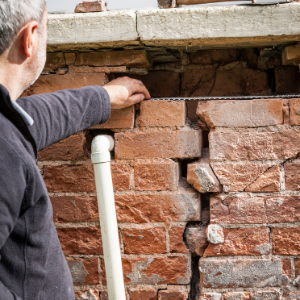
In Virginia residential transactions, home inspections regularly surface deficiencies that could impair the valuation and subsequent mortgage underwriting. Structural defects—notably diagonal cracks in the foundation and compromised roofing coverings—demand prompt remediation to arrest propagating deterioration and preserve structural integrity.
Concurrently, plumbing anomalies, including hidden leaks and antiquated waste, supply, and vent configurations, merit immediate correction to restore functionality and achieve compliance with the Virginia Uniform Statewide Building Code. Likewise, electrical deficiencies—characterized by undersized conductors, overloaded circuits, and non-grounded outlets—must be rectified to meet the latest safety benchmarks.
Heating, ventilation, and air conditioning (HVAC) irregularities, such as oversized or undersized ductwork, inoperative dampers, and aging equipment that operates at a low seasonal energy efficiency ratio (SEER), present rectifications that, if left unattended, expose the prospective owner to unnecessarily elevated future energy costs. Concomitant disparities in indoor air quality, predominantly basally derived mold or an underserialized pest population, adversely impact resale appeal and occupant health.
Prompt corrective actions in Virginia’s constrained residential market create a basis for expeditious negotiations, alleviating lender underwriting hindrances and satisfying borrower due diligence expectations.
Negotiating Repairs Following a Home Inspection: Tips for Success
Negotiating repairs revealed by an inspection typically proves indispensable to successfully completing a Virginia residential purchase. Clarity regarding the ultimate obligor for needed repairs must precede any closing.
Purchasers ordinarily leverage the inspection report to isolate material repairs, recommending that the seller complete the work before transfer of title. Sellers may counter by offering to execute the repairs, credit the buyer a specified dollar amount at settlement, or decrease the purchase price by an equivalent sum.
Therefore, self-advocating buyers must comprehend the materiality of the deficiencies, rank structural deficiencies or imminent life-safety hazards above trivial cosmetic issues, and communicate that hierarchy, observing Virginia’s disclosure standards.
Retaining and consulting the client’s broker ensures the import of each demand is conveyed diplomatically, permitting the settlement ratification documents to memorialize repairs or concessions, thus foreclosing later misunderstandings. Maintaining calibrated firmness, eschewing rigid ultimatums, usually yields a satisfactory, executable consensus.
Legal Requirements for Home Inspections in Virginia
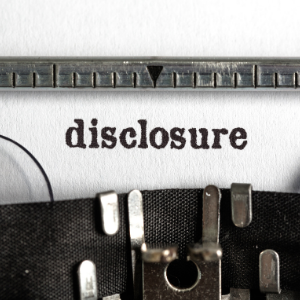
Although Virginia statutes do not mandate an inspection, buyers must remember that the law prescribes a disclosure statement listing known defects. To secure that statement, a buyer must submit a purchase agreement, a step that is tantamount to a practical inspection prerequisite.
If new material damage is discovered after the agreement’s ratification, sellers must then update that statement. This demonstrates the continuing serial obligations that reinforce the negotiation of repairs and militate against surprise liability at settlement.
Prospective purchasers in Virginia are generally obliged to commission a qualified home inspector to evaluate the residential property being acquired comprehensively. Although state law does not mandate the licensure of home inspectors, a substantial number voluntarily pursue certification from recognized professional bodies, including the American Society of Home Inspectors (ASHI) and the International Association of Certified Home Inspectors (InterNACHI).
Such certification ensures adherence to established industry standards, thereby offering buyers a heightened level of assurance regarding the quality and condition of the asset. Throughout a residential purchase agreement, the parties customarily deliberate over allocating costs associated with any repairs identified in the inspection report.
While a seller may concede to financing a portion of the necessary repairs or a corresponding concession in the purchase price, any such adjustments remain subject to negotiation and are best recorded in the purchase contract.
Therefore, acquiring a comprehensive understanding of the inspection, repair, and cost allocation processes is indispensable, as they can materially influence the negotiation dynamic in Virginia’s residential real estate transactions.
Do VA Buyers Pay for Appraisals?
VA buyers in the Virginia residential market should clearly understand their obligation to obtain an appraisal when applying for a VA home loan. The buyer will incur this cost as a core component of the transaction.
The Department of Veterans Affairs mandates an appraisal to confirm that the assessed value of the home coincides with the amount being financed, thus safeguarding both the borrower and the lender from extending credit at a value that is not justified. The corresponding fee, which is usually clarified within the disclosure documents, forms one of the pricing components located under closing costs and is therefore not optional.
Although the seller may, in some negotiations, grant credit to offset a segment of closing costs, VA buyers ought not to rely upon this practice. The prudent approach remains that the borrower should incorporate this appraisal fee within their budget in advance. Preparing to accommodate this expense enables a smoother transaction in a relatively volatile market and diminishes the likelihood of unanticipated postponements in settlement.
Who Pays for a Home Inspection in Virginia?
In Virginia residential transactions, the responsibility for the cost of the home inspection customarily rests with the buyer. The home inspection remains a discretionary yet highly advisable procedural safeguard, furnishing prospective purchasers with an independent evaluation of the residence’s overall condition. The buyer should therefore budget for this customary expense, as it is not a cost typically covered by the seller or absorbed within the loan terms required for VA financing.
Consequently, purchasers are empowered to make informed choices and, where warranted, to request the correction of deficiencies or to advocate for modifications to the sale contract. Although sellers occasionally agree to absorb the inspection cost as part of the broader negotiation or as an incentive, the prevailing custom places the obligation to arrange and finance the inspection squarely upon the buyer.
Clarifying the financial responsibility for the inspection in the Commonwealth of Virginia assists homebuyers in establishing a realistic budget. It underscores the essential role of this evaluative step in safeguarding their financial commitment.
Before executing the contract, a buyer who secures a detailed inspection report may uncover latent conditions—such as foundational deficiencies, compromised plumbing, or outdated and unsafe electrical systems. This preparatory step ensures that purchasers are fully cognizant of potential expenses that may not be immediately visible, thus enabling a more judicious decision-making process before the transfer of ownership.
Who Is Responsible for the Cost of the Appraisal?
In Virginia’s residential property market, both buyers and sellers must clarify who is obligated to pay the cost of the appraisal and the examination of fair market value that lenders require. The appraisal is ordinarily contracted and paid for by the buyer since the buyer’s mortgage lender mandates it to ensure that the property is sufficient collateral for the proposed loan.
Appraisal fees in Virginia vary according to property characteristics, including square footage and location, yet they generally range from $300 to $500. Buyers are therefore advised to incorporate this figure into their initial affordability calculations.
Although less common, a seller may agree to pay for a portion or the entire expense of the appraisal, bundling the concession into the structured settlement of closing costs. Virginia real estate practitioners routinely urge buyers and sellers to declare who bears the appraisal charge plainly in the purchase agreement to eliminate any ambiguity and prevent later disagreements.
Recognition of these cost responsibilities will promote greater confidence and transparency throughout a Virginia residential transaction.
Who Pays for Appraisal If Deal Falls Through?
In Virginia’s residential marketplace, a clear grasp of the financial implications of a canceled property sale is crucial. Customarily, the buyer pays the appraisal fee in advance during the mortgage underwriting process.
If the contract is subsequently terminated due to financing problems, a variance in appraised value, or unmet contract conditions, the buyer generally remains liable for the appraisal cost. Fees of this nature tend to be non-refundable because the appraisal is ordered and completed independently by an appraiser whose mandate is to deliver an impartial valuation.
Consequently, purchasers must plan for this expenditure irrespective of the ultimate transaction. When negotiating the contract and its contingencies, the buyer and seller should acknowledge this financial exposure to assess the transaction’s economic viability clearly. Awareness of this obligation is a prudent aspect of the due diligence process in any Virginia residential sale.
Whether you’re facing costly repairs, struggling with appraisals, or simply need to sell your Virginia house fast, Cash For Houses Girl makes the process simple by offering fair cash offers, quick closings, and a hassle-free way to move forward on your terms. Contact us at (804) 376-8771 today to know more!
Helpful Virginia Blog Articles
- The Right Way to Sell a Condemned House in Virginia
- Selling a House with Fire Damage in Virginia
- Squatter’s Rights in Virginia
- Stop Foreclosure in VA
- Selling a House with Asbestos in Virginia
- Selling A House When Behind On Payments in Virginia
- Sell a Hoarder House in Virginia
- How to Sell a House in Probate in Virginia
- How to Sell My House to a Developer in Virginia
- Selling A House During Divorce In Virginia
- Understanding Who Pays For Home Appraisals And Inspections In Virginia Real Estate

| REAL ESTATE APPRAISERS | LOAN APPLICATIONS | HOME LOAN | NMLS | MONEY | HEATING |
| VENTILATION | HEATING AND COOLING SYSTEMS | HEATING, VENTILATION, AND AIR CONDITIONING SYSTEMS | TAX | TAXES | REGULATORY |
| REGULATIONS | REALTORS | INFORMATION | DEPT. OF VETERANS AFFAIRS | DEPARTMENT OF VETERANS AFFAIRS (VA) | ADVERTISERS |
| WATER | PREMIUM | INSURANCE | VETERANS UNITED HOME LOANS | HOME EQUITY | EQUITY |
| PIXELS | PAYMENT | HEATING | HEAT | COOKIES | |
| CRAWL SPACES | PUBLIC WATER SUPPLY | WATER SUPPLY | WATER SUPPLIES | REFINANCES | |
| REFINANCING | POLICY | PROPERTY OWNERSHIP | OWNERSHIP | HOMEBUYERS | LICENSED REALTORS® |
| LOAN OFFICER | GOAL | DOWN PAYMENT | BANK | BANKING | COOLING |
| AIR CONDITIONER | AIR CONDITIONING | U.S. | STOVE | RISKS | RECEIPT |
| MANAGEMENT | LATE FEE | HOME EQUITY LOANS | FREDDIE MAC | ESCROW | ESCROW ACCOUNT |
| COMPANY | CASH | VALUE OF THE | OF THE PROPERTY AND | VALUE OF THE PROPERTY |
